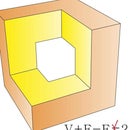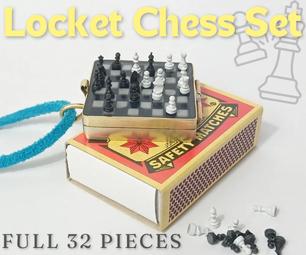Introduction: Black Star – Paper Polyhedron
Black Star – Paper Polyhedron
To assemble a polyhedron, you need to download a shaped net.
Print the shape net on three A4 sheets.
You can use one of three types of shape nets:
- Or №1 polyhedron shape net (print 3 copies)
- Or №2 polyhedron shape net (print 3 copies)
- Or №3 polyhedron shape net (print 3 copies)
Maybe there is a ready-made kit so that I don't cut out the parts, but just glue it together?
Yes, there is such a set. Called Magic Edges 28.
It can be found on Amazon:
Step 1: Preparation for Assembling a Polyhedron
For convenience, it is
recommended to draw the fold lines with a
ballpoint pen. This will speed up the bending process of the petals. To draw fold lines, you will need a pen, a ruler, and a few sheets of plain paper to create a soft-surface lining. The ball on the tip of the ballpoint pen, drawing a line, creates pressure on the paper and pushes it slightly. The resulting fold line is quite comfortable. But, if you wish, you can refuse this stage of work and go straight to the next one.
Each detail should be cut along the contour using ordinary scissors.
Step 2: Assembly of a Polyhedron.
1. We glue the parts together through the side triangular surface. An example of two pieces glued together.
2. We glue the third part.
3. We glue three more parts and get a base of six parts.
4. We turn the base over.
5. We glue five more parts.
6. The final stage, we glue the last 12th part.
We get the finished model of the polyhedron.
Step 3: Polyhedron Properties.
The polyhedron has the property of symmetry.
Such a star-shaped form in mathematicians has its own name.
The full name of the polyhedron is the 9th stellated form of the icosahedron.
To obtain such an unusual pattern, it is enough to give one face a certain color.
The combination of 60 of these patterns creates a three-dimensional geometric shape.

Participated in the
Back to Basics Contest












